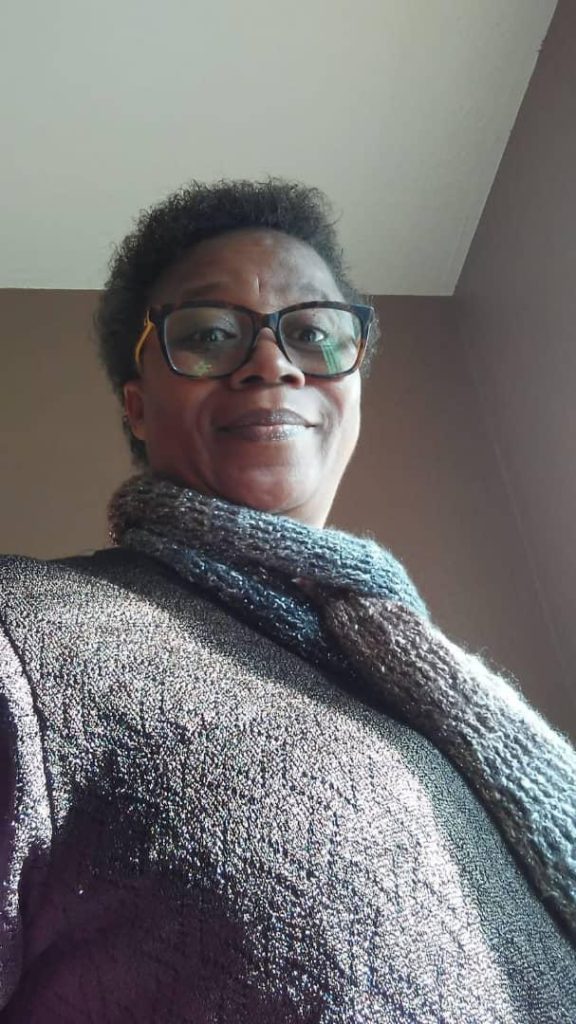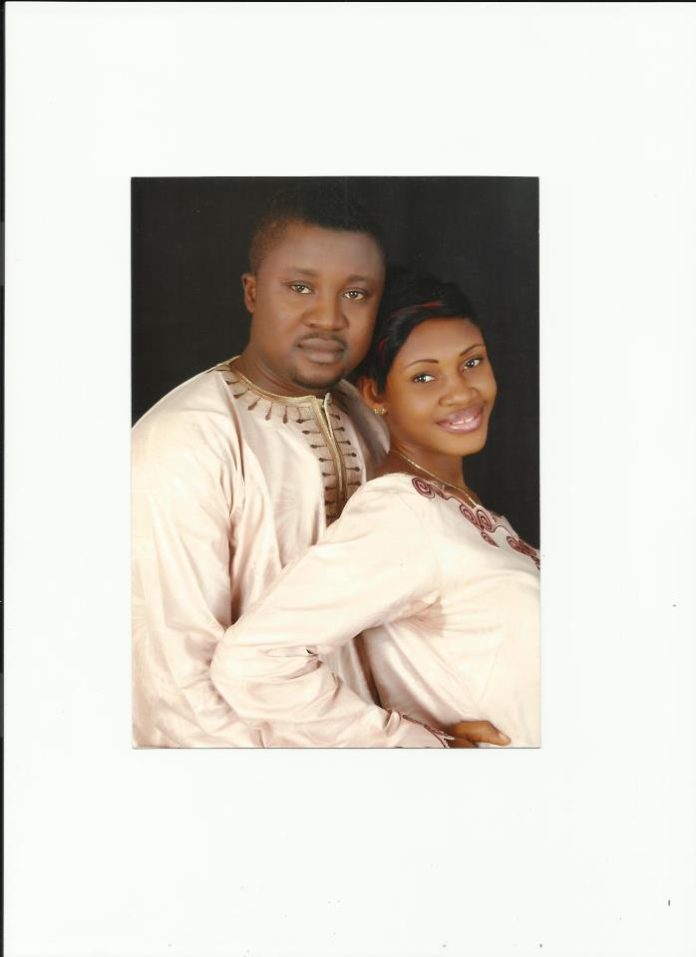By Josephine Uzorh
Harry and Megan fascinated millions across the world in May 2018 when they broke British royal tradition by getting married.
He, a prince and fifth in line to the throne in England. She, an actress, born in Los Angeles, who became an American expat living and working in Toronto, Canada.
Harry is white. Megan is black or biracial, with a white father and a black mother.
All of that combined to make their marriage groundbreaking.
It was joyful and inspiring to globalists everywhere. And if there was any fuss by nationalists, it subsided in April 2019 when the couple’s first child, Archie, was born.

Marriage is a legal union between a man and a woman to live as husband and wife for the rest of their lives.
Nigeria has 250 ethnic groups and as many cultures. Some have reservations about crossing the ethnic divide to marry, but others have interesting experiences to share.
Emeka and Gloria Olah
Gloria Olah, born in Delta State, has been married to Emeka for six years. He is from Enugu State.
Gloria said she had no clue that she would end up marrying someone from a different ethnic group, because she did not really fancy the idea. But she married Emeka after meeting him through a friend.
She hesitated in starting the relationship but quickly realised that he had everything she wanted in a husband. And so she followed her heart.
“When we first met, I was not so sure about the relationship, but after spending time with him, I knew what I wanted, and I went for it,” she recalled.
After their traditional marriage, Gloria stayed back with her in-laws in Enugu State, which helped her improve her knowledge of the state and also make new friends.
She learned Igbo and also learned to cook traditional Igbo delicacies.
“Before marrying my husband, I never knew how to prepare Oha soup or Ukazi soup. But I’ve learnt them all, and now I’m an expert in preparing them, because they are part of my husband’s favorite dishes.”
On her tips for a happy marriage, Gloria said one needs to exercise patience and tolerance in every situation; and to communicate with the spouse for mutual understanding.
“Do not let the fact that you are Yoruba and he is Igbo discourage you. As long as you two love each other and are ready to spend your lives together, go for it.
“If I had listened to what people said, I wouldn’t be where I am today, happily married with three beautiful daughters.”
Pascal and Ini Oparada
Pascal Oparada, from Imo State, also did not originally think he would marry out. But the qualities he saw in Ini, now his wife of eight years, made him change his mind.
Ini is from Akwa-Ibom.
Both families initially objected to the marriage. Pascal’s siblings wanted him to marry a woman from the South East, while Ini’s father felt Pascal’s occupation was not stable.
However, with time and a lot of convincing, the couple were able to overcome every obstacle and they got married in 2011.
Pascal said his reason for not supporting inter-ethnic marriage initially was because he felt the different cultures would clash and “the children might have identity issues, they wouldn’t know where they belong.”
But, after meeting Ini and getting to know her, he realised she has a caring heart and everything he wanted in a wife.
So, from his experience, he believes inter-ethnic marriage is an opportunity for couples to learn new things like culture, language, tradition, et cetera.
Pascal advised men to be open-minded about inter-ethnic marriage so they can learn about other people’s way of life.
“Men especially should go out and marry people not from their tribe, that way they will learn.
“It would also allow the children to have a broader view of life, make them easily accepted wherever they go and they wouldn’t have the bias other people carry”, he said.
Ajadi and Muslimat Ayodeji
Muslimat Ayodeji from Kogi State has been married to Ajadi from Abeokuta, Ogun State for five years. They have three children.
“It’s all about the heart, where your heart is. If you find somebody you love, then their tribe or state of origin should not be a problem.
“It is only if your heart is not in the relationship that you would find it difficult to cope. Just listen to your heart,” Muslimat counselled.
She said there are times she has had to concede some things to her husband, like naming their children, because he is the head of the home.
In her view, love is essential in marriage because there are things a wife might not be able to tolerate from her husband if she does not love him.
Before she married Ajadi, she recalled, many people tried to discourage her, telling her awful things about people from Abeokuta; but she did not allow any of that to dissuade her from the man she wanted, she went ahead with her heart.
“Follow your heart, and let God lead you,” Muslimat said.
Ezeano and Chika ThankGod
Chika ThankGod has been married for 22 years to Ezeano. He is from Enugu State, she from Imo.
Chika said all human beings are the same although individual personalities and character play strong roles in people’s lives and differences can occur even in a marriage between two people from the same tribe.
Her words: “Generally, human beings are the same all over the world, because the book of Acts 17:26 says God created all human beings from one blood. Differences can occur whether or not you marry someone from your ethnic group, culture, et cetera.
“There might even be more differences when you marry someone from your ethnic group than if you didn’t. Basically, it all depends on the personality and character of a person.
“The spirit is the strongest part of a human being. You can marry anybody from anywhere if your hearts and spirits agree.”
Eugene and Stella Onyeji
Eugene Onyeji from Imo State, married to Stella from Delta for 17 years, believes the most important thing is for the couple to love each other, and also seek God’s direction.
“Marriage is not something to jump into, you need to ask God to give you divine direction. Once you have an understanding, and you both agree with each other,” Eugene stressed.
He believes an inter-ethnic marriage fosters easy communication and adaptation between people.
“The parents would be able to teach the child both languages, and the child would understand both cultures, and easily adapt. The child can easily blend with others outside,” he said.
Adesola Adeagbo
Adesola Adeagbo, a teacher, said inter-ethnic marriages should be encouraged because they would reduce division in Nigeria and bring everyone together as one.
And, she added, it would be beneficial especially to children who would have the opportunity to learn more than one language.
John and Abigail Cloud
“Inter-ethnic marriage should be celebrated and embraced in Nigeria because it helps in building trust and unity between people of different cultures.
“Which is what we need in Nigeria,” advocated John Cloud, who married his Ghanaian wife, Abigail, a year ago.
Ayodele and Peace Olorunfemi
Ayodele Olorunfemi, a travel consultant in Jigawa State, said inter-ethnic marriages should be encouraged for growth and oneness.
Ayodele, from Kogi, has been married to Peace from Benue for seven years. They have two children.
He sees inter-ethnic marriage as an opportunity for couples to learn a new lifestyle and culture, as his own experience has improved his understanding of other cultures.
He also believes inter-ethnic marriage would reduce stereotypes because people would interact comfortably with one another for pleasure or for business.
These would in turn be beneficial for the national economy, Ayodele added.
Lucky and Maryjane Wali
Maryjane Wali, from Ebonyi, believes marriage should be by choice, and between two people who are compatible; it should not matter where the person is from.
She initially thought her husband, Lucky, was also from the South East because he speaks Igbo fluently, only to later discover that he hails from Rivers in the South South.
Maryjane recalled that some people tried to dissuade her from marrying him, but she was not moved because she was not after his tribe or ethnicity, all she wanted was an understanding husband – one of the attributes she saw in Lucky.
She prayed and asked God for guidance to be sure of Lucky’s compatibility before she finally accepted him as her husband. They have been married for three years with two children.
Inter-ethnic marriage should be encouraged for the unity of Nigeria, she stressed, because “it brings unity to the nation at large.”













